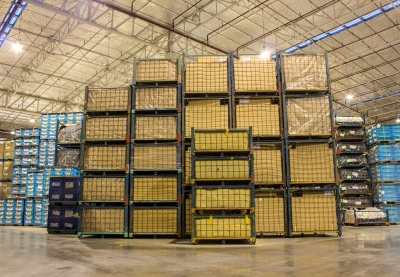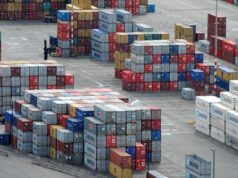New Philippine Bureau of Customs (BOC) guidelines on the establishment, operation, supervision, and control of customs bonded warehouses (CBWs) are out.
Customs Administrative Order (CAO) No. 13-2019, signed by Finance secretary Carlos Dominguez III on August 27 and Customs commissioner Rey Leonardo Guerrero on August 5, covers all types of CBWs listed in the Customs Modernization and Tariff Act (CMTA), as well as those to be created by the secretary of finance upon the recommendation of the Customs commissioner.
CAO 13-2019 was published on October 9 and will take effect after 30 days.
CBWs are warehouse facilities licensed by BOC to import, receive, and store—without payment of duties and taxes and under bond—goods, raw materials, accessories, and packing materials either for manufacture into finished products for export or for storage for the account of authorized end users or clients.
CBWs may be classified as either manufacturing or non-manufacturing.
A manufacturing customs bonded warehouse (MCBW) may be a customs common bonded warehouse (CCBW); industry-specific bonded warehouse (ICBW), miscellaneous manufacturing bonded warehouse, garments and textiles manufacturing bonded warehouse, or private manufacturing bonded warehouse.
A non-manufacturing customs bonded warehouse includes public bonded warehouse, private bonded warehouse, airlines customs bonded warehouse and airlines catering customs bonded warehouse, and multinational regional bonded warehouse.
If such facilities are needed for trade and the business of the port, the district collector, with the approval of the Customs commissioner, will designate and establish customs warehouses for storage of imported goods or for other special purposes.
The district collector will have supervision and control of all warehouses and facilities, including their expansion, extensions and additional facilities, in order to protect government revenue, and the goods stored in them. This supervision and control extends to the warehouse and facilities of duly authorized members, client, exporters, and subcontractors of CBWs.
If the client exporter of ICBW or the sub-contractor of MCBW is also a locator of Free Zones, supervision and control will be exercised in coordination with the government agency concerned.
The Finance secretary may, when recommended by the Customs commissioner, create or dissolve certain types of warehouses in consultation with the National Economic and Development Authority and Department of Trade and Industry based on prevailing economic circumstances.
Issuance of authority to operate
BOC will be responsible for issuing an authority to operate CBWs, including imposing the requirements for their establishment and operation, setting forth the rights and obligations of operators, and laying down the penalties and sanctions for violating these rules.
The application to operate a CBW, including accreditation as a member, a subcontractor, or a client-exporter of an existing warehouse, should be filed with the district collector where the CBW is located.
The authority to operate a CBW, including warehouse extensions and additional facilities, is valid for three years upon approval of the application to establish the facility, as stated in the Certificate of Authority to Operate.
If the lease of contract submitted during the application is less than three years, the validity of the authority to operate will be coterminous with the lease contract unless a new one with a longer period is submitted.
Application for renewal to operate a CBW should be filed not later than 90 days but not earlier than 120 days before expiration. For CCBWs or ICBWs with more than 10 members or client-exporter respectively, application for renewal will be filed not later than 120 days before expiration.
BOC will impose an annual supervision fee, service fee, and other charges on operations of CBWs, including extensions and additional facilities, if any, in accordance with the schedule provided under BOC’s CAO on service fees.
BOC will establish a Compliance Rating System (CRS) that will be used to measure and assess the compliance and performance levels of all CBWs, especially with regard to applicable laws, rules, and regulations and other performance factors in consultation with stakeholders. The system will also be used by BOC as a risk management mechanism in evaluating any application, or be used as basis in any action which may be taken by the agency against a CBW.
Customs officers and personnel will be assigned to CBWs to monitor and implement control measures, and the warehouse operator must provide working areas complete with office equipment and supplies so they can perform their functions.
Goods entered for warehousing may remain in a CBW for up to one year from the time they arrive at the warehouse. However, the commissioner may, in consultation with the secretary of trade and industry, extend the storage period beyond one year for particular bonded goods for manufacturing and intended for export, subject to the approval of the secretary of finance.
This is to allow time for these bonded goods to be processed into finished products, as they require a longer period based on industry standards and practices.
For perishable goods, the storage period is three months from arrival at the warehouse, extendible for valid reasons and upon written request, for another three months.
Imported goods should be withdrawn from CBWs when the necessary withdrawal permit has been filed together with required documents. Goods not withdrawn after the prescribed period has expired will be deemed abandoned, unless the CBW operator expressly abandons the goods.
Bonded raw materials withdrawn within the prescribed storage period should be manufactured and exported within one year from the time of arrival at the CBW. Goods withdrawn within the prescribed period but re-exported beyond the said period will be subject to applicable penalties.
CBWs will be under the supervision and control of BOC, as these are considered as extension of customs premises insofar as the dutiable goods stored and introduced are concerned. However, BOC will not be liable for any loss or damage of goods stored in any CBW.
Fines and penalties
Penalties for diversion or unauthorized withdrawal or repacking are duties, taxes and charges due on the goods withdrawn plus a surcharge of 50% of duties, taxes, customs fees, and charges found to be due and unpaid for the first offense; suspension of warehousing privileges for six months on the second offense; closure of the CBW on the third offense and when the withdrawal is attended with fraud.
Penalties for unauthorized location are the same as those for diversion of unauthorized withdrawal until the third offense.
There are also penalties for the late application for renewal, which range from P100,000 to P250,000 plus suspension of privilege as CBW operator for members of CCBW and ICBW, and from P150,000 to P250,000 with suspension of privilege as CBW operator for other CBWs.
Late re-exportation, meanwhile, will be imposed a 2% per month of the collectible duties and taxes, counted from the date of expiration of the bond to date of actual exportation for being late for up to six months; and penal amount of the bond in addition to the 2% per month of the collectible duties and taxes counted from the date of expiration of the bond to date of actual exportation for being late beyond six months.
Late submission of documents such as proof of re-exportation or authority to cancel bonds issued by the Customs commissioner, among others, will be fined with amounts ranging from P1,000 to P6,000 to the penal amount of the bond.
The penalties, fines, or surcharges will be applied on erring importers or warehouse operators without prejudice to other actions that BOC may file against the importer and surety company for breach of bond or take action on the importation pursuant to the CMTA.
The penalties are without prejudice to the criminal and other liabilities imposed under the CMTA and other laws.
Any existing contracts of private operators with concerned agencies and regulatory bodies, such as but not limited to the Philippine Ports Authority, Subic Bay Metropolitan Authority, Phividec Industrial Authority, and their respective affiliates and subsidiaries, including the powers and privileges already granted under the contract, will not be impaired or adversely affected by CAO 13-2019.
Moreover, the customs commissioner may have all existing CBWs re-evaluated, reclassified, and reorganized to ensure compliance with the requirements and conditions of the CAO.
CBWs already existing and authorized to operate prior to effectivity of the CAO are required to comply with all administrative and reportorial requirements set forth after six months of the effectivity of the CAO. – Roumina Pablo









